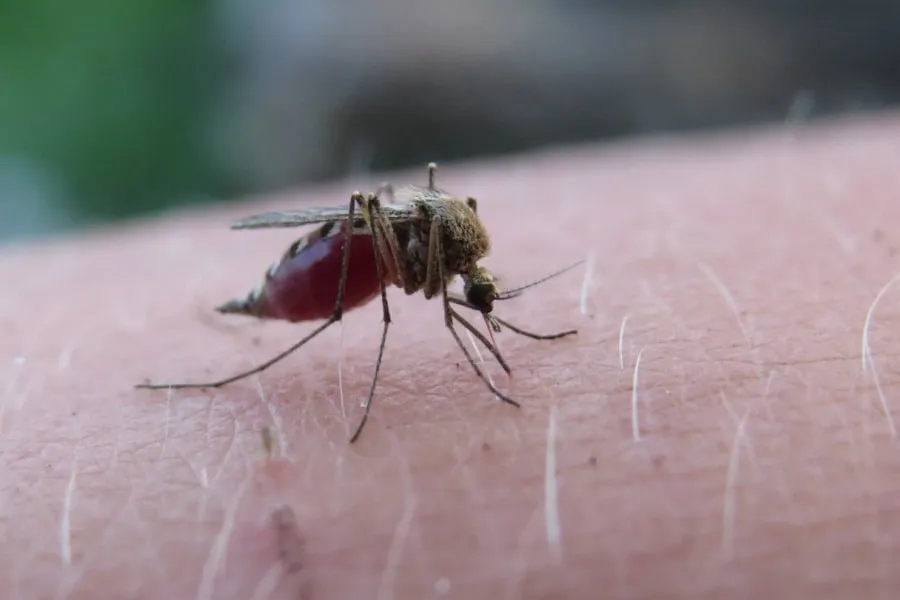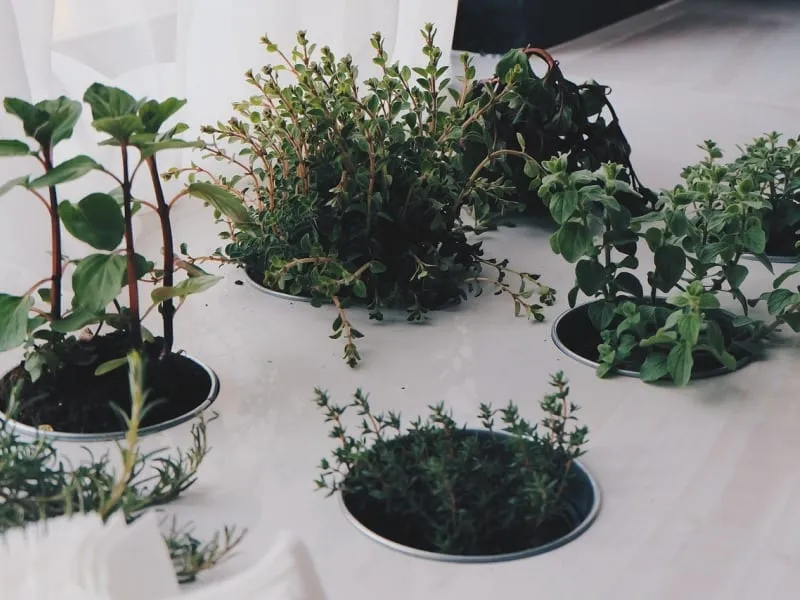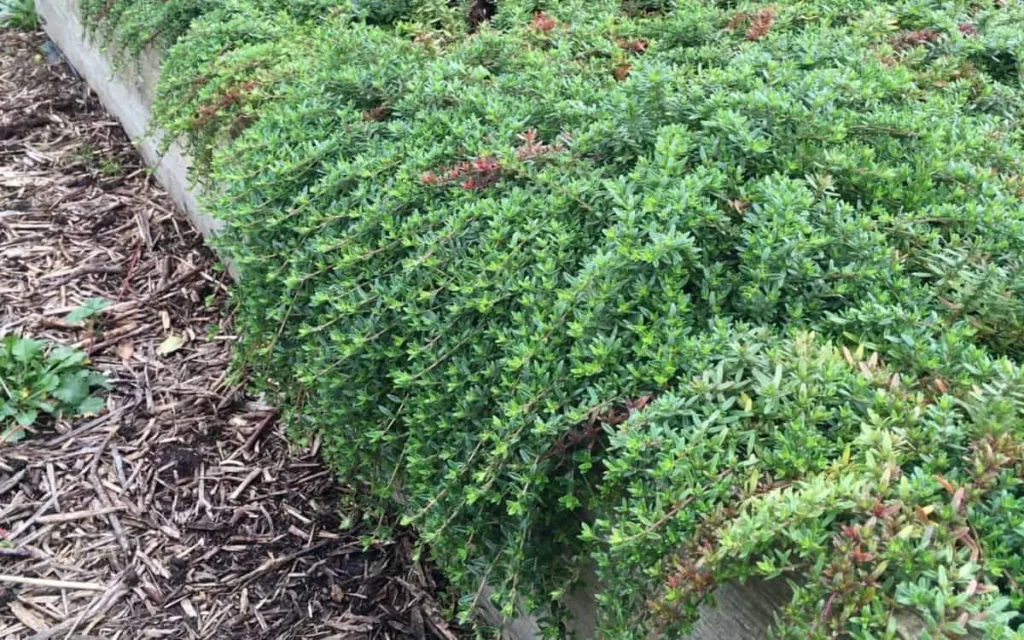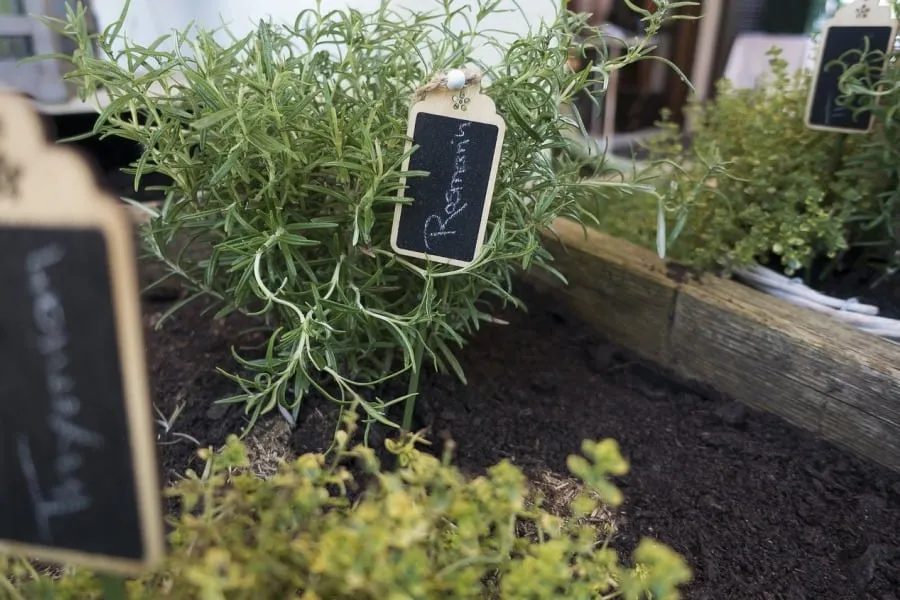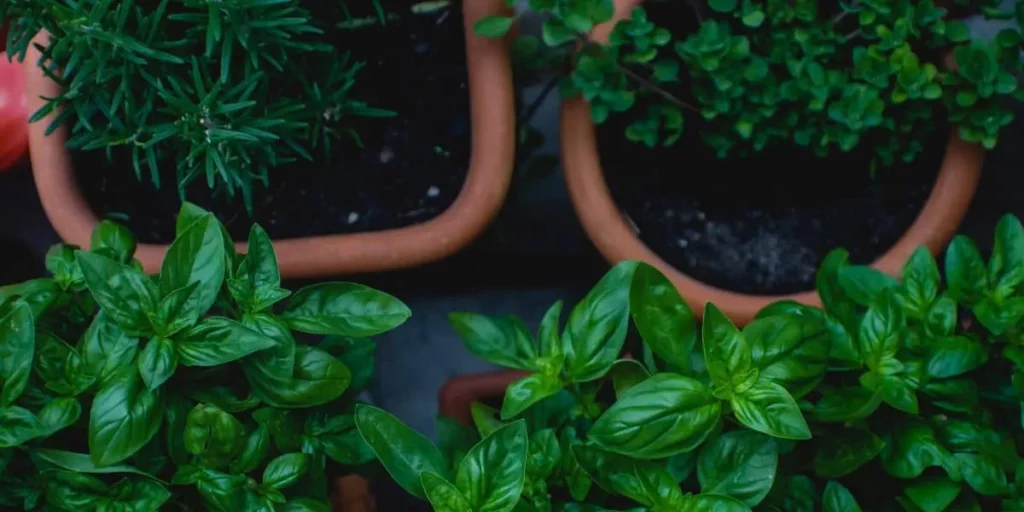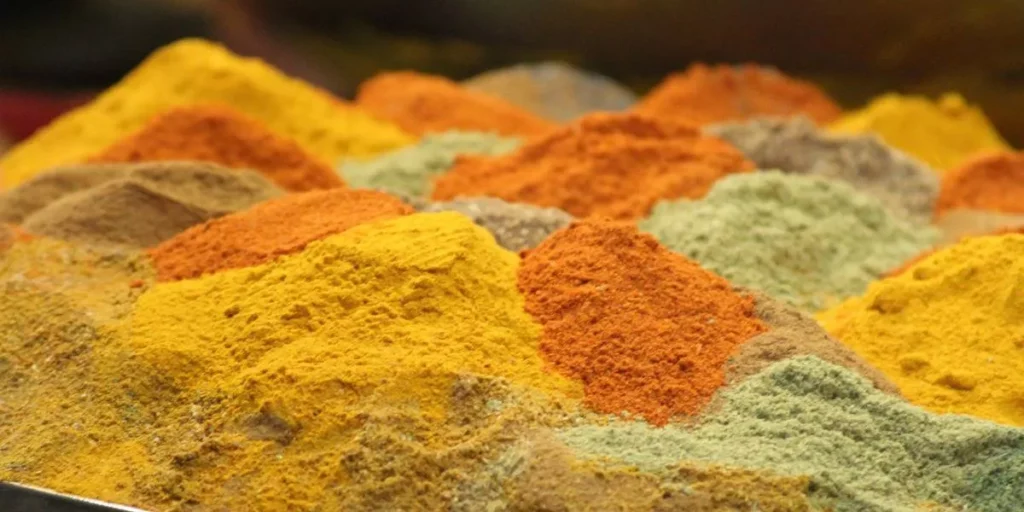What could be better than spending a relaxing day in the garden? Having breakfast on the terrace, playing with the children on the lawn and then ending the warm evening with a glass of wine under the stars. Pure idyll! Until suddenly that high-pitched buzzing sound in your ear. Mosquitoes and other insects can quickly spoil our outdoor fun.
Lavender, sage, mint, basil and rosemary are suitable as repellents against mosquitoes, ants, spiders or even wasps due to their essential oils. By skillful use of selected herbs can be targeted insects from the terrace, from the apartment or from their own bodies keep away.
Itchy mosquito bites, aphid populations on the beloved roses, and wasps gleefully feasting on our jam sandwich – most gardening enthusiasts can tell you a thing or two about it. But how to combat the little pests? Sure, you could pull out the chemical mace right now. But not only is this harmful to our health, it also drives away beneficial insects like honeybees, ladybugs and colorful butterflies.
Fortunately, nature can help us. Numerous plants and herbs such as lavender, basil and rosemary are known to keep insects at bay. But why can some plants be used as insect repellents, while others have no effect at all on mosquitoes and the like?
The secret lies in the essential oils. These volatile mixtures of substances, which are usually stored in the leaves, emit a strong scent. They serve the plants, for example, to attract pollinators or keep pests away. Herbs have particularly high levels of essential oils, which is why their scent repels many insects.
So you can easily plant your own insect repellent with herbs. In the following, you’ll learn which herbs help against wasps and co., in which locations the plants are particularly useful, and how you can protect yourself from pests on the go.
Contents
- 1 Flies, ants, aphids and co. – there’s a herb for every little animal
- 2 Which herb helps against which insect?
- 3 Deterring flies
- 4 No chance for the horseflies
- 5 Herbs against wasps
- 6 Keeping bees at a distance
- 7 Drive away ants
- 8 Biological action against aphids
- 9 Herbs against spiders
- 10 Use herbs to keep your terrace, balcony and apartment insect-free
- 11 Insect repellent from herbs to go
- 12 Author
Flies, ants, aphids and co. – there’s a herb for every little animal
Insects and other creepy-crawlies are an important part of any garden. As beneficial insects, they pollinate flowers, serve as food for birds and help decompose dead plant parts. At the same time, there are some winged and many-legged contemporaries that make life difficult for us. For those who want to deal with pests in a gentle and biologically compatible way, herbs are an excellent choice.
Which herb helps against which insect?
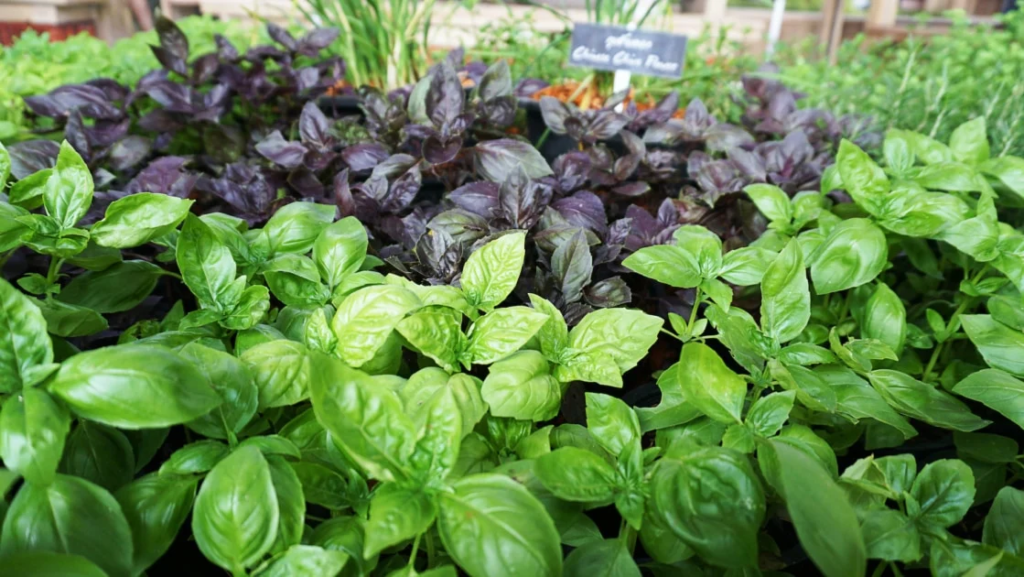
Goodbye mosquitoes
Especially in the evening hours in summer, the mini-vampires become a torment. If you don’t want to use chemical mosquito repellents, you can use herbs. The bloodsuckers do not like the smell of the essential oils of many plants. In addition, the scent masks our own odor. Herbs such as basil, sage, rosemary, lemon verbena, lavender and mint are effective against mosquitoes. The lemony-smelling geranium, tomatoes and wormwood also repel the pests. You can also learn how to make your own repellent at the end of this article.
Deterring flies
Houseflies don’t bite like mosquitoes, but they can get on our nerves if they’re constantly circling our heads or desperate for a piece of our dinner. But with the scent of nasturtium, these pesky insects quickly look the other way. In addition, various types of mint such as catnip, peppermint, and polei mint are very effective with their aromatic smell. Other helpful herbs include lavender, geraniums, marigolds and tansy.
No chance for the horseflies
Also belonging to the suborder of flies are horseflies. However, these make themselves known through extremely painful bites. The plants mentioned for houseflies usually also help against horseflies. Especially the scent of rose geraniums has a very repellent effect.
Herbs against wasps
Who does not know it? You have nicely arranged the breakfast table on the balcony and you are just about to bite into your cheese roll, when the first wasp flies up. The delicious meal quickly continues to talk and soon three, four or five of these hungry insects are buzzing around you. Fortunately, various herbs help against wasps, including lavender, palergonia, lemon balm, basil, rosemary and thyme. However, the deterrent effect only works if the herbal scent isn’t masked by delicious food smells, such as grilled steak.
Keeping bees at a distance
As pollinators, bees are among the most important insects in the ecosystem, which is why the pollen collectors are highly valued in most gardens. In some cases, however, they can be a nuisance, for example if they stray into the house. In addition, they pose a danger to allergy sufferers. It is best to place flowering plants that are popular with bees a little further away from the seating area on the terrace if you are not comfortable with the insects. What bees don’t like? The smell of basil and lemongrass.
Drive away ants
Did you know that there are an estimated 10 trillion ants on the planet? Of these, some are probably living in your garden. The creepy-crawlies are useful because they loosen the soil and play the role of health police. However, they often cause us headaches, for example, when they build their burrow in the middle of the lawn or protect unloved aphids. Like many other insects, they abhor the scent of essential oils. This includes especially lavender and mint.
Biological action against aphids
Aphids pop up out of nowhere as temperatures get warmer and make a beeline for our beloved plants. What you can do about it? Underplant rose bushes with sage or lavender, the plant suckers don’t like the smell at all. It also helps to plant parsley, mint, savory and rosemary in many places in the garden as a preventative measure. The aphids are already here? Then try to fight them with a plant decoction, for example, from oregano leaves.
Herbs against spiders
Spiders are extremely useful insectivores. But many people are overcome with horror when they discover such an eight-legged creature in their home. Remedy is herbs against spiders in the house. Cultivate basil and rosemary in a pot or place a few sprigs of lavender in the vase.
Use herbs to keep your terrace, balcony and apartment insect-free
As you can see, there are many herbs and other plants to choose from to deter insects and spiders. But is it enough to put the plants in the garden to have peace and quiet from mosquitoes and Co. Unfortunately, it is usually not that simple. However, if you follow some advice, you can make it very uncomfortable for the little pests.
You want to enjoy the peace and quiet on the terrace undisturbed? Then it is advisable to plant various herbs along the perimeter of the terrace. The scent of essential oils should surround you as directly as possible. That is why it is worth placing a pot of basil or mint on the table. Since the oils are stored in the leaves, you can rub some of them with your fingers and spread them on your skin.
Double power against insects: What mosquitoes also don’t like, besides strong smells, is smoke. Simply place a fireproof bowl filled with sand on the table. Light a piece of incense on it. Now mix dried herbs such as lavender, rosemary, sage and peppermint with a little spruce resin and put them on the glowing coal. A similarly effective alternative are scented sticks that you add essential oils to.
There is probably nothing more annoying than a mosquito in your bedroom that robs you of sleep. To keep uninvited guests out, you can place herbs such as basil, catnip or lemon balm in pots on the windowsill. A fragrance lamp with essential oils is also helpful and has a calming effect.
Insect repellent from herbs to go
You can also take advantage of the effect of herbs when you’re out and about. If you don’t want to apply a thick layer of chemical mosquito repellent on your trip to the lake, you can find numerous plant-based repellents in stores. It is even better to make your own insect repellent from herbs.
Option 1: Repellent made from fresh or dried herbs.
Ingredients:
- Herbs such as lemongrass, mint and lavender (fresh or dried).
- Witch hazel water
- Water
- Add 3 to 4 tablespoons of the herbs to boiling water and let the mixture simmer for two minutes. After the decoction has cooled, put it in a spray bottle and fill it up with half a cup of witch hazel water.
Option 2: Insect spray made from essential oils.
Ingredients:
- Water (boiled tap water or distilled).
- Clear alcohol (min. 40%) from the pharmacy
- Essential oils (e.g. lavender, peppermint, tea tree oil, eucalyptus or citronella)
- Fill 4 tablespoons of alcohol into a spray bottle. Now add 7 to 10 drops of the essential oils and fill the mixture with the water to 100 ml total volume. The homemade repellent is ready. You can now spray it directly onto your skin. Nothing stands in the way of an insect-free time in nature.

